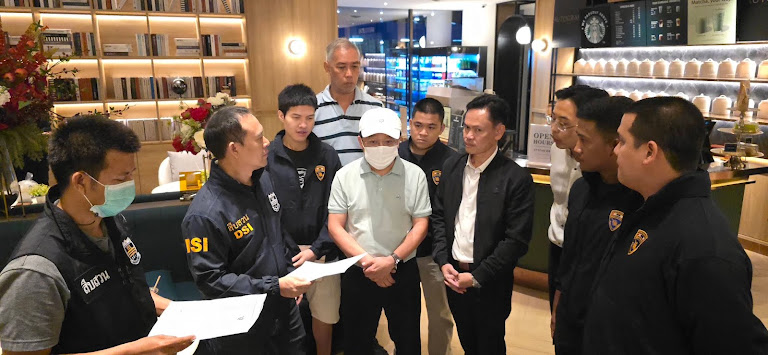Bangkok Building Collapse Reveals Shady Construction Practices, Arrests Follow
Executive’s arrest reveals nominee operations, a joint venture, and document seizures, highlighting regulatory gaps in international construction projects.

The arrest of a Chinese executive following a building collapse in Bangkok is more than a local tragedy; it’s a microcosm of the complex, often fraught dynamics of globalized construction in the 21st century. As reported in Khaosod English, the detention of Mr. Zhang Chuanling, a board member of China Railway No. 10 (Thailand), raises troubling questions about regulatory oversight, corporate structures, and the very foundations upon which we build our cities.
This isn’t simply about one collapsed building; it’s about a system. We’re living in an era of interconnected infrastructure projects, where international firms, joint ventures, and complex financing mechanisms are increasingly the norm. While this can unlock economic development and expertise sharing, it also creates opportunities for opacity and, as we see here, potential malfeasance. The fact that the State Audit Office building, ironically, was the only structure in Bangkok to collapse following the Myanmar earthquake speaks volumes about the potential vulnerabilities introduced when construction projects cross borders.
The details surrounding China Railway No. 10’s operations in Thailand highlight these potential pitfalls. The allegations of operating through nominees and forming a joint venture with Italian-Thai Development Public Company Limited to secure the contract suggest a system designed, perhaps, to circumvent regulations or obscure lines of responsibility. The 51/49 ownership split, with the Thai side fragmented across three individuals holding vastly disparate shares, while a single Chinese national controls the remaining 49%, raises immediate questions about the true balance of power and control.
The investigation, it seems, is just scratching the surface. The seizure of 24 containers holding documents related to the construction adds another layer of intrigue. What are these documents? What light might they shed on the decisions made during the building’s construction? And why were they stored beneath the parking structure of the very building that collapsed?
The broader implications extend far beyond Thailand. This case underscores the challenges inherent in regulating international construction projects:
- How do we ensure consistent standards and oversight across borders?
- How can we make sure that joint ventures don’t become shields for cutting corners or evading responsibility?
- And how do we balance the need for economic development with the paramount importance of public safety?
The collapse of a building is more than just a physical failure; it’s a failure of systems, a failure of oversight, and a failure of the shared responsibility we bear for the spaces we inhabit.
The arrest of Mr. Zhang is a first step, but it’s only the beginning. The real work lies in untangling the complex web of corporate structures, regulatory gaps, and potentially compromised practices that may have contributed to this tragedy. And, perhaps more crucially, it lies in asking ourselves how we can build a future where the pursuit of progress doesn’t come at the cost of human lives.









